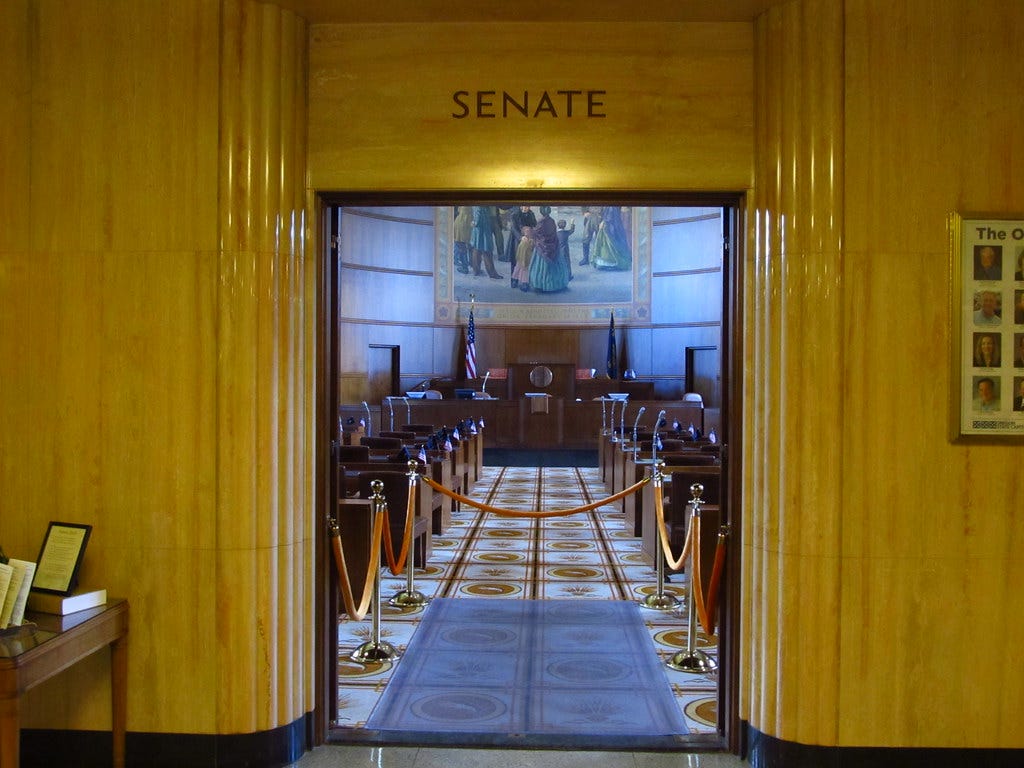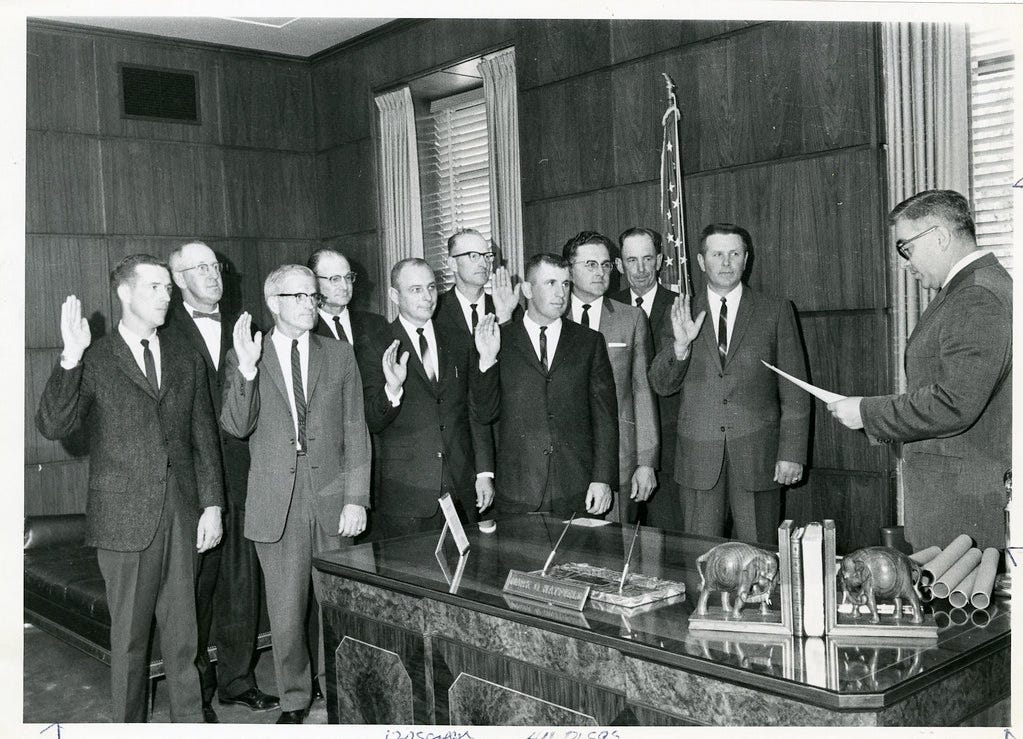Jim Moore: Splits in Oregon—or Not
Compromise, collaboration, and incremental progress may not be headline news but they are what the legislative record shows.
Behind the headlines, there’s pragmatism

"Salem, Oregon" by Jasperdo is licensed under CC BY-NC-ND 2.0
The news is filled with stories of the schisms in Oregon’s civic and political fabric. Rural vs. urban, Republican vs. Democrat, Portland vs. the rest of the state, east side vs. west side. But these splits are not so wide as to tear apart the state. Looking at some polling data and legislation coming out of Salem there is lots of evidence of agreement on many, many issues.
The headline issues in Oregon in the past few years have emphasized differences within our body politic. Cap and trade, gun issues, certain tax proposals—all have contributed to a feeling that there are insoluble problems that our current system simply cannot fix. Add to this the political tactics in Salem over the past couple of years–Republican legislators walking out of the building three times—and Oregon looks like a poster child for the national fractures that pass for politics these days.
But a closer look at the legislative record shows something else.
Remarkably, in every legislative session over the past decade, there is bipartisan agreement on about 85–90% of the legislation.
The evidence is right there in the legislative record—votes of 55–5 in the House and 24-6 in the Senate are fairly common, and on many issues there are only one or two in opposition. Remember, there are currently twenty-four Republicans in the House and twelve in the Senate—so a lot of Rs have to be voting for these bills. This tells me that the mundane business of governing continues and functions. The committee process generally allows voices to be heard, compromises seem to be reached, and the legislative bodies seem to have no problem passing bills.
But none of this is headline grabbing. It is also not what gets constituents back home to communicate with their representatives. For headlines and general community input, the issue needs to be controversial and well-covered in the news. For every cap and trade bill that dominates the perception of what the legislature is doing, there are dozens of other bills that move along from proposal to enactment without the histrionics. For most of us, it is those bills that will also have a larger impact on our everyday lives.
A pledge for progress

"Hop Commission swearing-in, 1966" by Oregon Department of Agriculture is licensed under CC BY-NC-ND 2.0
A group of Oregonians met over a year-long series of gatherings to consider the role of ethics in politics. Convened by Common Cause, the group consisted of former Republican and Democratic lawmakers, former managers of state employees, a retired Oregon Supreme Court Justice, activists, representatives of major employers, and me. We were all concerned about practices we saw in political campaigns and some of the actions we saw among lawmakers and state employees.
We created a three-pronged approach to bringing the concept of ethics back into the center of the people’s consideration of politics:
First, education.
Second, a pledge, based on current state law, for State of Oregon managerial employees.
And third, a pledge for candidates.
The candidate pledge was piloted for some races in the May primary. It will go out to all candidates for the November election. The other two prongs are on hold with COVID-19 slowing things down.
As part of this process, we worked with DHM Research to ask Oregonians a series of questions about how they prioritized types of political behavior. The results showed remarkable agreement across party lines, geographic locations, and almost any other demographic characteristics.
“How important, if at all, is it to you for someone in high political office to do each of the following?”
Be honest and ethical: 98% consider this essential
Work well under pressure: 87% consider this essential
Be able to work out compromises: 83% consider this essential
Maintain a tone of civility & respect in politics: 71% consider this essential
Is it “more important for political leaders in Salem to compromise in order to get things done” or “more important for political leaders to stick to their beliefs, even if little gets done?”
More important to compromise 41%
Neutral 42%
More important to stick to beliefs 15%
The broad agreement that Oregonians want representatives who will get things done rather than stake out positions that shut things down is remarkable. And Oregonians value those who play well with others—are civil, who compromise, are productive in pressure situations, and, above all, those who are honest and ethical.
It is often difficult to focus on what unites us rather than what separates us in our current political world.
But there are fundamental shared values out there that can be tapped into and used to rebuild a better functioning political society.
This change can come from the voters, from leadership among politicians, and from an active media. But it will take a bit of work to shovel through the headlines to begin to make that process a reality. In other words, don’t look for much of this until after the 2020 elections are over.



